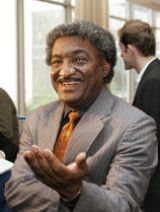Sudan gives own interpretation of new Darfur force
August 1, 2007 (UNITED NATIONS) — Western nations maintain the main purpose of the new U.N.-African Union force for Darfur is to protect innocent civilians while Sudan insists the operation must not usurp Khartoum’s ultimate responsibility.

Expected to cost more than $2 billion in the first year, the so-called “hybrid” operation aims to quell violence in Darfur, where more than 2.1 million people have been driven into camps and an estimated 200,000 have died over the past four years.
The resolution allows the peacekeeping mission to use military force to protect its personnel, the freedom of movement of relief workers and the protection of civilians. It would assume authority over the 7,000 African Union soldiers now in Darfur by Dec. 31 but the daunting task of finding enough personnel is expected to take many more months.
The precise wording of the text could support both interpretations. The resolution says that force also could be used “to protect civilians without prejudice to the responsibility of the government of Sudan.”
Sudan’s U.N. ambassador, Abdalmahmood Abdalhaleem Mohamad, said he was grateful that Britain and France, negotiators of the measure, removed some of the harsher provisions, such as the threat of sanctions and the right to seize illegal arms.
“Regarding the protection of civilians, it is reflected very clearly that this should not be prejudicial to the responsibility of the government of Sudan itself,” Mohamad told reporters. “No blank check is there.”
But Britain’s U.N. Ambassador Emyr Jones Parry told reporters, “There is certainly no need to seek the agreement of Sudan” to protect civilians, saying the force commander had a mandate to make decisions on the ground.
France’s deputy U.N. ambassador, Jean-Pierre Lacroix, agreed, saying: “It is clear authorization to take necessary measures to protect the civilian population.”
While all European nations on the council sponsored the resolution, the United States did not join in. Diplomats said Washington was disappointed in the modifications and wanted quicker deployment of the force.
But U.S. Ambassador Zalmay Khalilzad said, “I would not read too much into this. The important thing is that we voted for it and we support it.
“There is a strong protection for civilians so we are satisfied with this resolution.”
Many of the changes in the text were made to get Sudan’s cooperation and that of its supporters on the council, such as Qatar, the only Arab nation, and at times, China.
Rape, looting, murder and government bombardment drove millions from their homes in Darfur, where mostly non-Arab rebels took up arms in early 2003, accusing Khartoum of neglecting their desert region.
The rebels now have split into a dozen groups, many fighting one another. All speakers emphasized that without a peace agreement, now under negotiation, the war would not end.
“But we also have to tackle the ongoing relief that is necessary — 4 million people today living on food aid,” Jones Parry said.
(Reuters)
